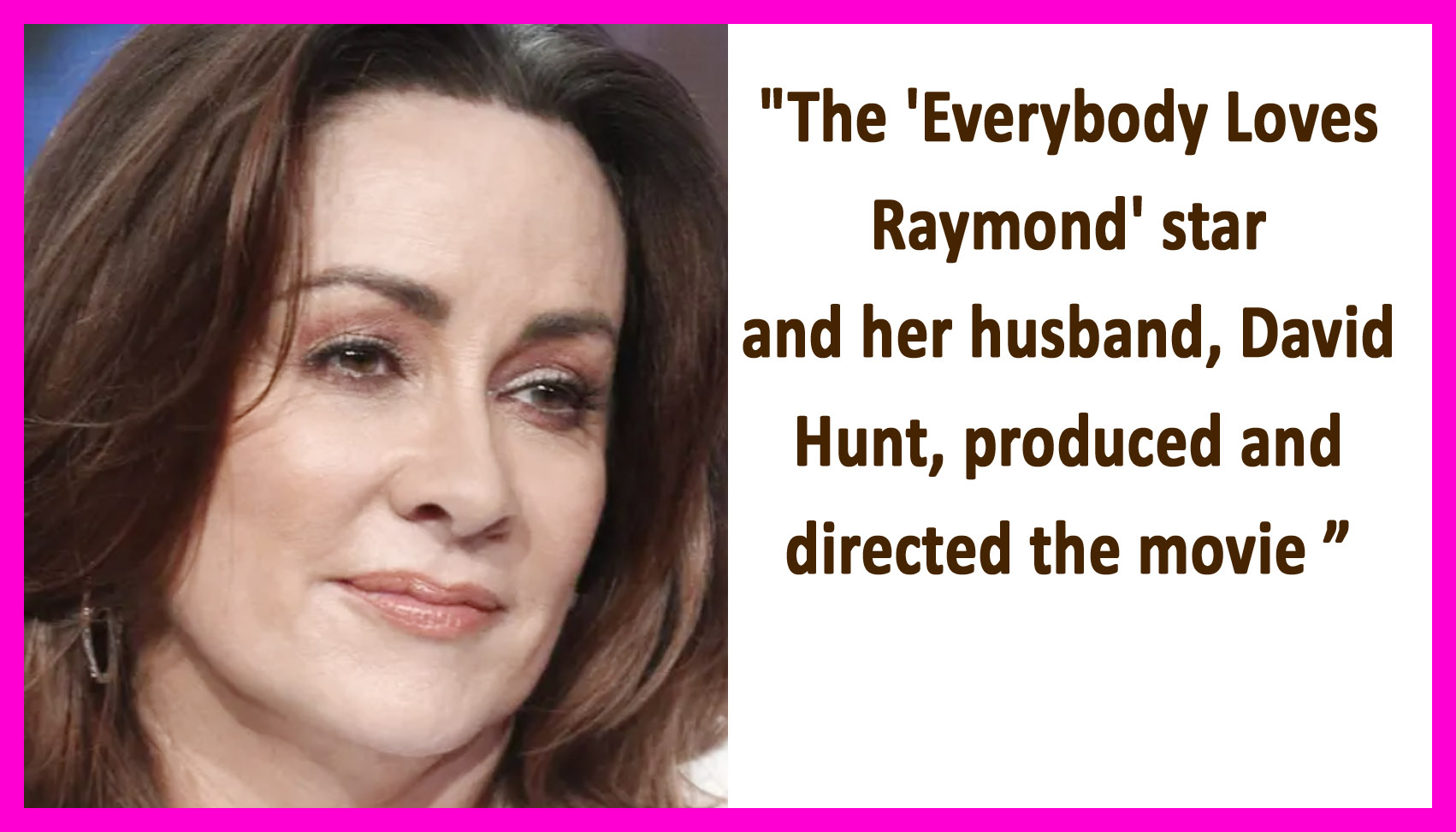Patricia Heaton Warns Women Not to Wait Too Long to Have Children
In a world that is constantly evolving and changing, career aspirations, personal goals, and the pursuit of financial security have often taken precedence over family planning. For women in particular, societal pressures and evolving cultural norms have made it increasingly common for them to delay motherhood in favor of pursuing education, establishing a career, and finding the right partner. While these are undoubtedly important goals, the reality of biological limitations cannot be ignored. One public figure who has been vocal about this is actress Patricia Heaton, best known for her roles in Everybody Loves Raymond and The Middle. Heaton, who is a mother of four, has spoken openly about the challenges of balancing career and motherhood, and has become an advocate for women to consider having children earlier in life. She has warned women against waiting too long to have children, offering insights from both personal experience and scientific understanding.
The Pressures of Modern Life
Patricia Heaton’s warning is not just based on her personal experiences, but also reflects the broader societal pressures that many women face. In the past, women had fewer choices when it came to work, family, and career. Marriage and motherhood were expected milestones, often occurring soon after high school or college. However, today’s women live in a vastly different world. The feminist movement of the 20th century opened doors for women to pursue careers, education, and independence in ways that were once unavailable. Women now have more control over their lives, and the idea of waiting until they are emotionally, financially, and professionally ready to have children is more common than ever.
Unfortunately, while these opportunities are empowering, they also bring with them a set of challenges. Women are increasingly choosing to wait until later in life to have children, often in their 30s or even 40s, as they prioritize career goals, personal development, and finding a partner. This decision can seem sensible when considering factors like financial stability and personal readiness, but the reality of biological clocks can complicate matters significantly.
The Biological Clock: An Unavoidable Reality
Patricia Heaton’s message about not waiting too long to have children is grounded in the reality of the biological clock. Women are born with a finite number of eggs, and as they age, the quantity and quality of those eggs decline. This natural process can make conception more difficult as a woman gets older. According to experts, fertility begins to decline after the age of 30, with a sharper decline occurring after 35. This is particularly relevant when it comes to a woman’s ability to conceive without the assistance of fertility treatments, which can be expensive, emotionally taxing, and not always successful.
Heaton herself experienced the challenges of fertility later in life. In interviews, she has shared her personal struggles with conception and pregnancy, explaining how her own journey to motherhood was not as straightforward as she had hoped. Despite being in her 30s when she had her first child, Heaton has been candid about the difficulties she faced with fertility treatments and her decision to have a fourth child at the age of 47. While she was ultimately successful in her efforts to have a family, her experience is a cautionary tale for women who might underestimate the role age plays in fertility.
The issue of age-related fertility decline has been a topic of conversation for years, with many women unaware of how rapidly their fertility can decline once they reach a certain age. In addition to the decrease in egg quality, older women are also more likely to face complications during pregnancy, such as gestational diabetes, preeclampsia, and a higher risk of miscarriage. There is also a higher chance of chromosomal abnormalities, such as Down syndrome, in babies born to older mothers.
While advancements in reproductive technology, such as in vitro fertilization (IVF) and egg freezing, have made it possible for women to delay childbearing to some extent, these options come with significant financial costs, emotional strain, and no guarantees of success. Egg freezing, for instance, involves hormone treatments to stimulate the ovaries and retrieve eggs, which are then frozen for later use. While this may offer women a “backup plan,” it is not a perfect solution and does not fully eliminate the challenges associated with age-related fertility decline.
Heaton’s Personal Experience
Patricia Heaton’s personal experience with motherhood provides a compelling case for why women should consider having children earlier rather than waiting too long. Heaton was in her late 30s when she had her first child, and at the time, she was balancing a burgeoning career with the responsibilities of motherhood. While she acknowledges that she was lucky to have been able to conceive and give birth without any major issues, she also points out that waiting too long to have children can lead to unexpected complications.
Heaton has spoken candidly about the struggles of juggling a successful career and family life, especially as she got older. As a mother of four, she was forced to confront the reality of balancing motherhood with her professional life, especially in an industry that often values youth over experience. Heaton’s career in Hollywood didn’t stop her from wanting to build a family, but the challenges of timing, age, and professional commitments made it clear to her that having children earlier could have been a better choice.
Heaton’s advice is not about discouraging women from pursuing their dreams or delaying motherhood if they’re not ready. Rather, she urges women to be realistic about the biological factors at play. Heaton emphasizes that it is important to make informed decisions about family planning and not to wait too long if having children is part of a woman’s life plan. She believes that women should be aware of their fertility and consider the potential risks associated with waiting until later in life.
The Importance of Family Planning
Family planning is a topic that often feels overwhelming, and the decision of when to have children is deeply personal. Heaton’s message is one of empowerment — it’s about providing women with the information they need to make choices that are right for them. One of the key aspects of family planning is understanding fertility and how it changes over time. Women should be aware of their options, including fertility preservation, and discuss them with their doctors if they are unsure of when to start trying for a family.
Many women, especially those in their 20s and early 30s, may feel they have plenty of time before they need to consider the possibility of starting a family. However, as Heaton’s experience illustrates, waiting too long can present unexpected challenges. Fertility declines gradually over time, and the risks associated with later pregnancies increase as a woman ages. Heaton’s advice is clear: don’t wait until it’s too late to consider starting a family. In addition to biological concerns, Heaton also stresses the importance of a strong support system, including a supportive partner, family, and friends. Having children is a major life decision, and the support of loved ones can make the journey of motherhood much smoother.
The Cultural Shift
Patricia Heaton’s warnings are part of a larger cultural shift in which women are given more freedom and autonomy to make choices about their lives, but at the same time, they are often confronted with the reality of limited fertility. This shift also brings about a growing recognition of the importance of balancing career and family. More and more women are choosing to have children later in life, but they also understand the need to plan ahead and educate themselves about their fertility.
In Heaton’s case, her success as an actress has given her a platform to share her message, and she has become an advocate for open discussions about fertility. By addressing these issues publicly, Heaton is not only helping to inform women but also removing the stigma that often surrounds fertility struggles. In the past, many women may have felt embarrassed or ashamed to discuss the challenges they faced in trying to conceive or during pregnancy, but Heaton’s openness has helped to normalize these conversations.
As Heaton continues to raise awareness about the realities of fertility, her message resonates with women who may be facing their own struggles or who are simply seeking to make more informed choices about when to start a family. Whether a woman decides to have children earlier or later in life, the key takeaway from Heaton’s advice is to make choices based on both personal desires and the biological realities that come with age.
Patricia Heaton’s warning to women not to wait too long to have children is an important one, based on both her personal experience and the biological realities of fertility. While women today have more opportunities than ever before to pursue careers, education, and personal goals, the decision to delay motherhood can come with unintended consequences. Heaton’s message is not about pushing women into motherhood at an early age, but rather encouraging them to make informed decisions and be realistic about their fertility. As more women consider their options for family planning, Heaton’s advice serves as a reminder that while modern life offers many opportunities, it is also important to understand and respect the biological limits of fertility.











